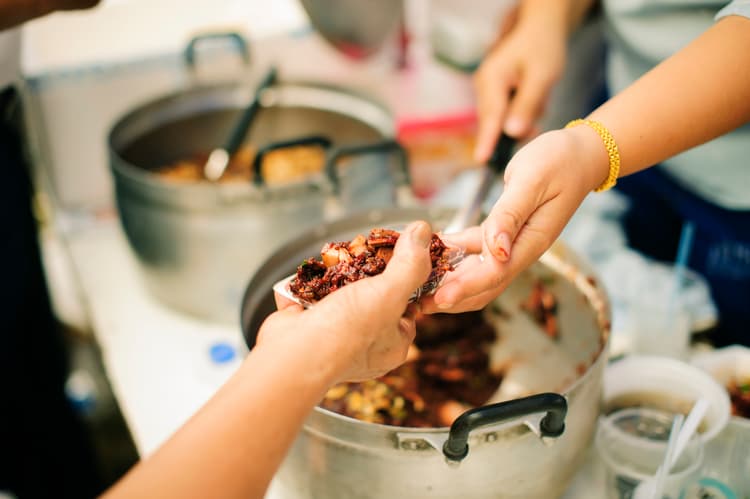GiveDirectly is the first — and largest — nonprofit that lets donors like you send money directly to the world’s poorest. We believe people living in poverty deserve the dignity to choose for themselves how best to improve their lives — cash enables that choice.
We Effect fights poverty by supporting and empowering people living in poverty, to transform their lives and claim their human rights. Working primarily with small holder farmers, we are reaching out to millions of people.
The International Potato Center (CIP) believes that we can ensure food security if the best people are brought together on a team focused on this mutual cause. CIP has a diverse group of scientists and professionals from all over the world who bring a wealth of talent and experience to bear for this cause. CIP provides a nurturing environment where staff grow together on teams and strives to recognize and enhance your skills at every phase of your career.
myAgro is committed to empowering smallholder farmers, especially women, to reduce poverty and increase food security. While myAgro started by pioneering the use of mobile layaway, it has quickly evolved into an enterprise that provides comprehensive support to smallholder farmers on every level. From delivering high-quality input packages to providing both in-person and remote training, myAgro works with farmers year round to increase yields and income
Welthungerhilfe is one of the largest private aid organizations in Germany, independent of politics and religion. It was established in 1962, as the German section of the "Freedom from Hunger Campaign", one of the world's first initiatives aimed at the eradication of hunger.
The Food and Agriculture Organization of the United Nations(FAO) is a Specialized Agency of the United Nations that leads international efforts to defeat hunger. FAO serves both developed and developing countries, and acts as a neutral forum where all nations meet as equals to negotiate agreements and debate policy. In addition FAO is a source of knowledge and information, and supports developing countries and countries in transition to modernise and improve agriculture, forestry and fisheries practices, ensuring good nutrition and food security for all.
The International Crops Research Institute for the Semi-Arid Tropics (ICRISAT) is a non-profit, non-political organisation that conducts agricultural research for development in Asia and sub-Saharan Africa with a wide array of partners throughout the world. Covering 6.5 million square kilometres of land in 55 countries, the semi-arid or dryland tropics has over 2 billion people, and 644 million of these are the poorest of the poor. ICRISAT and its partners help empower these poor people to overcome poverty, hunger and a degraded environment through better agriculture.
The International Fund for Agricultural Development (IFAD) invests in rural people, empowering them to reduce poverty, increase food security, improve nutrition and strengthen resilience. Since 1978, we have provided US$22.4 billion in grants and low-interest loans to projects that have reached an estimated 512 million people. IFAD is an international financial institution and a United Nations specialised agency based in Rome – the United Nations food and agriculture hub.
The International Rice Research Institute (IRRI) is the world’s premier research organisation dedicated to reducing poverty and hunger through rice science; improving the health and welfare of rice farmers and consumers; and protecting the rice-growing environment for future generations. IRRI is an independent, nonprofit, research and educational institute, founded in 1960 by the Ford and Rockefeller foundations with support from the Philippine government. The institute, headquartered in Los Baños, Philippines, has offices in 17 rice-growing countries in Asia and Africa, and more than 1,000 staff.
The United Nations World Food Programme is the world’s leading humanitarian organisation and works to achieve Zero Hunger. WFP delivers food assistance in emergencies and partners with communities to improve nutrition and build resilience. With 90% of our workforce based in Country Offices and field operations, WFP serves more than 150 million people in over 120 countries and territories.
Book Recommendations:
- Manchester recommends Friedrich Engels’ classic book, The Condition of the Working Class in England, a call to arms sparked by the poverty Engels saw in the country in the 1840s. German-born Engels explores the human cost of the industrial revolution, depicting overcrowded housing, abject poverty, child labour and sexual exploitation. It is considered a pioneering work of social history.
- Icelandic writer Halldór Laxness’ book Independent People, recommended by Reykjavik, tells the story of a sheep farmer’s heroic determination to eke out an independent living in the harsh landscape of rural Iceland. The brunt of his obsessive quest is felt most by his family as his own daughter becomes equally determined to become independent from her father. Laxness tells this battle of wills with humour in a book writer Annie Proulx calls “sardonic, clever and brilliant.”
- 40 Chances is a story of Billionaire businessman and philanthropist Warren Buffet son, Howard. The book follows Howard’s journey around the world to learn about solutions to end food insecurity. The story is about his journey to accomplish something great in the world with $3 billion.
- In Full Planet, Empty Plates, the author Lester Brown explores the risk for global conflict due to the shrinking natural resources. He explores how shrinking natural resources for growing food could lead to global conflict. Based on extensive research in the agricultural sector, he discusses what the geopolitics and political implications in an era dominated by scarcity and food nationalism.
- The authors of World Hunger - 10 Myths, Frances Moore Lappé and Joseph Collins share sustainable solutions for zero hunger worldwide through sustainable agriculture. There are a lot of myths circulating regarding food insecurity that they address through facts and research.
Impactpool Career Podcast | Episode 11: How to achieve zero hunger?
